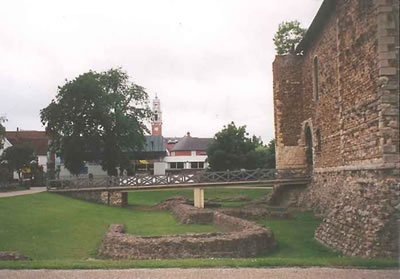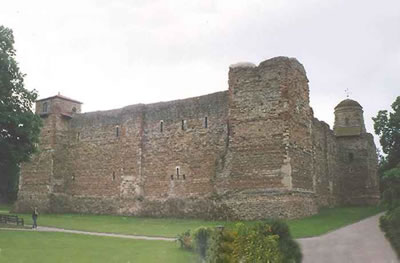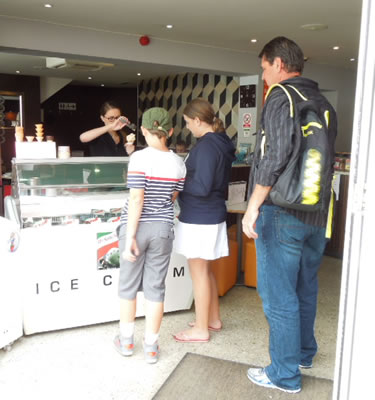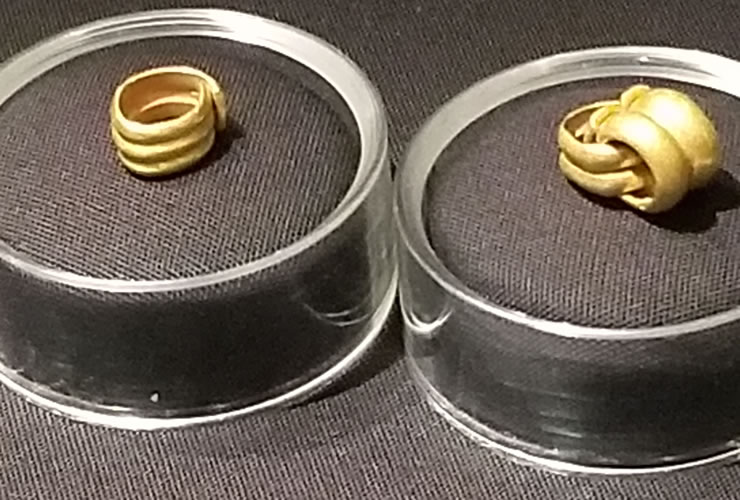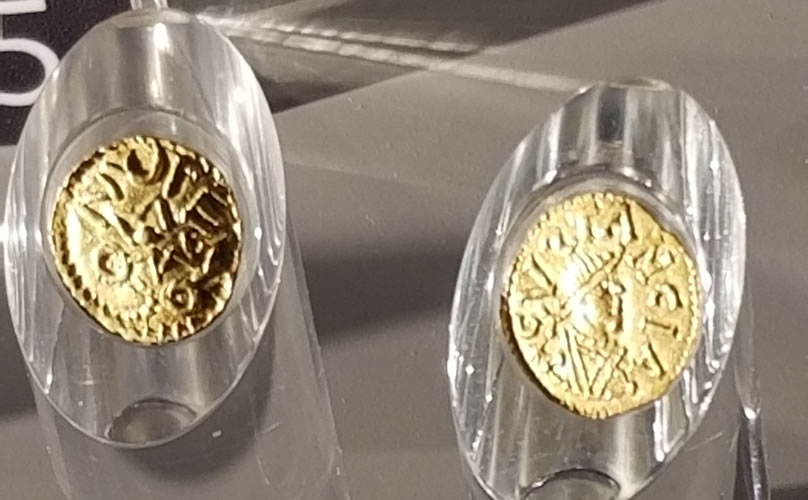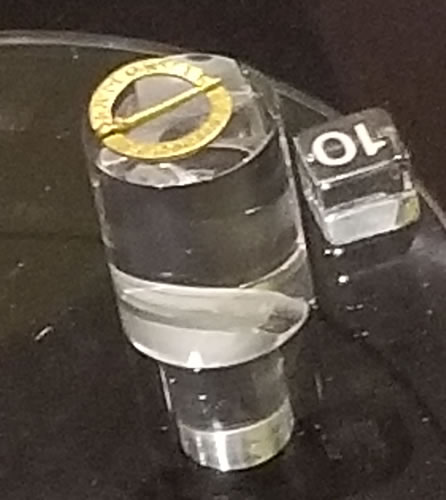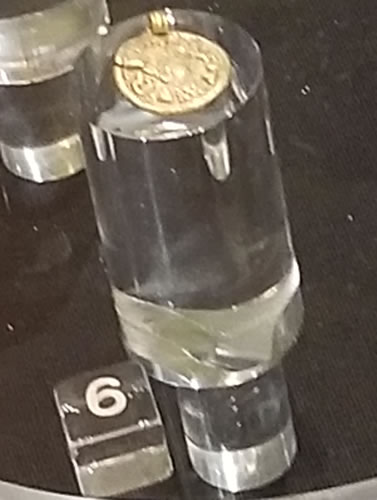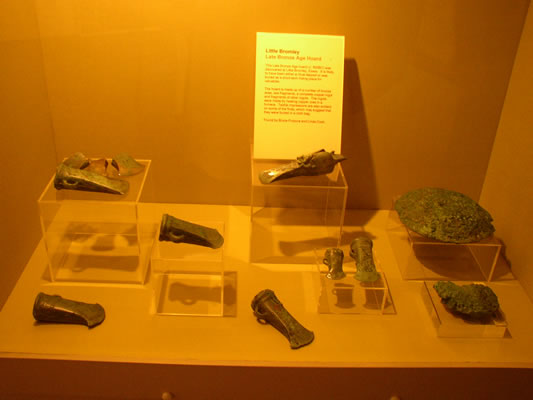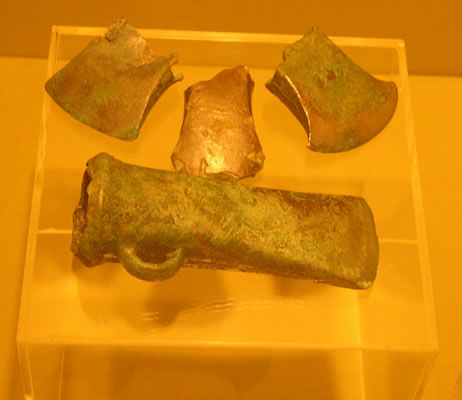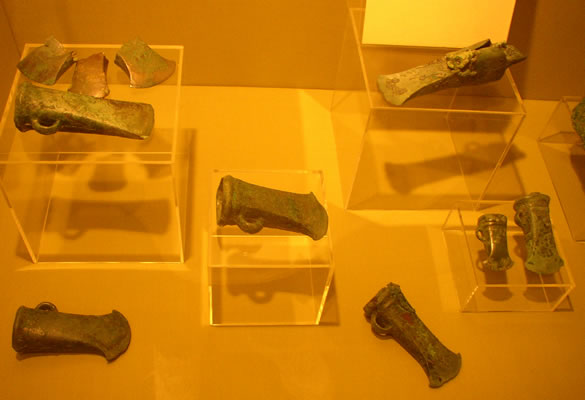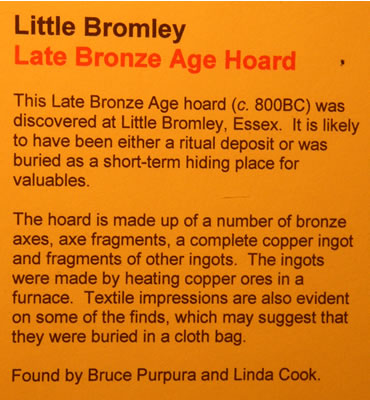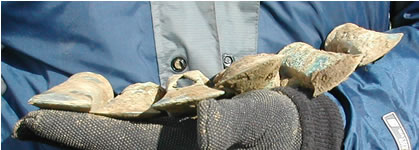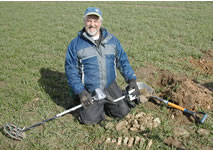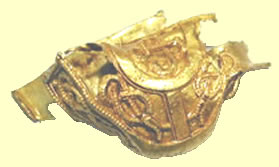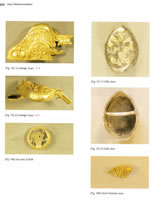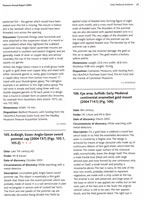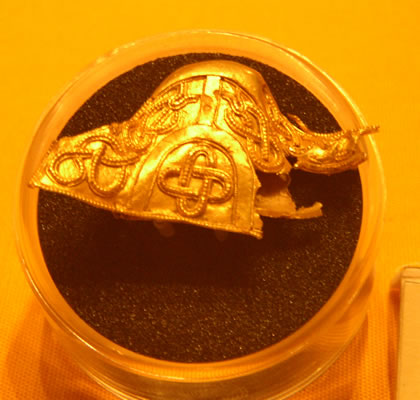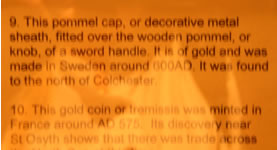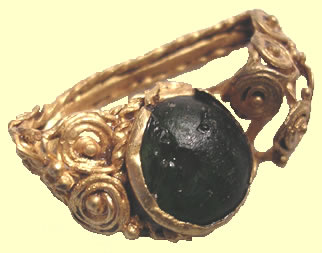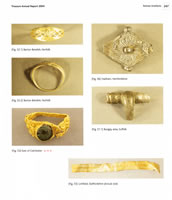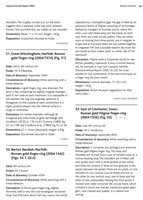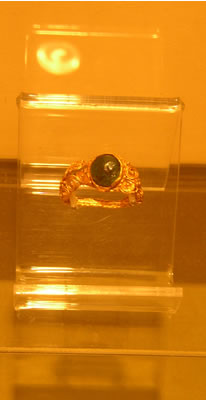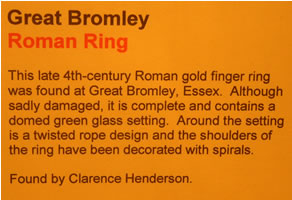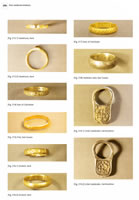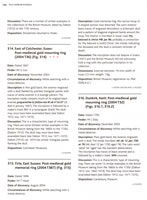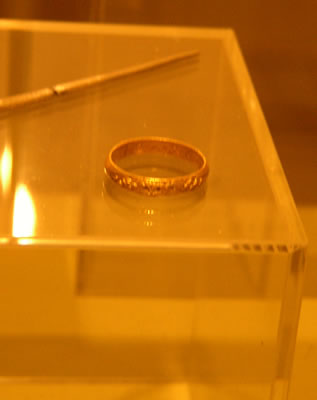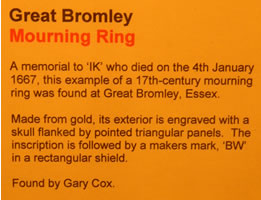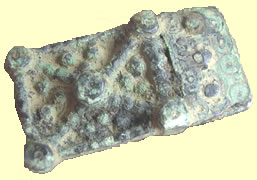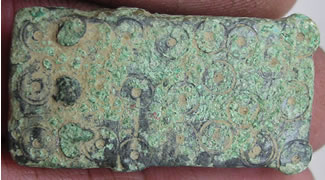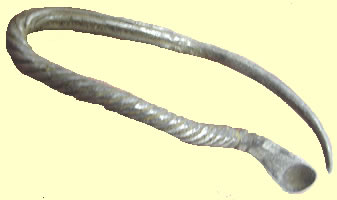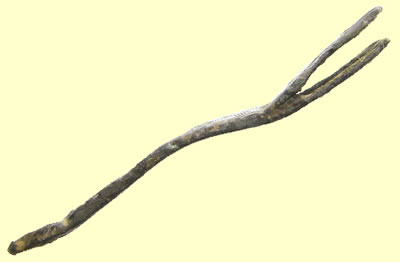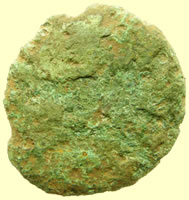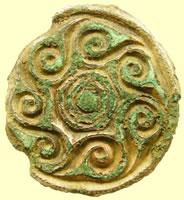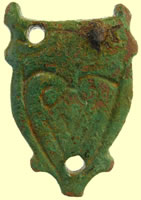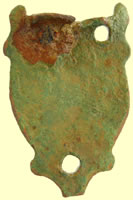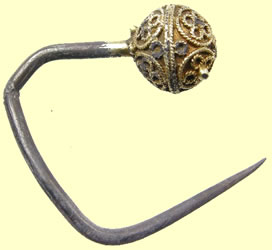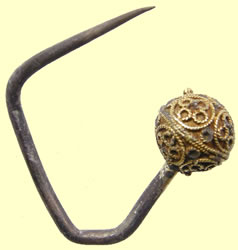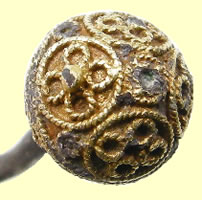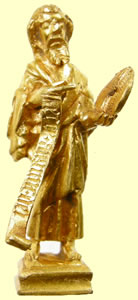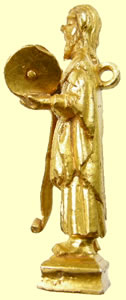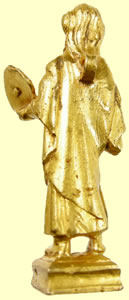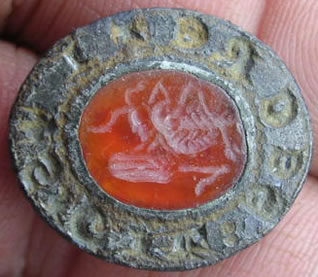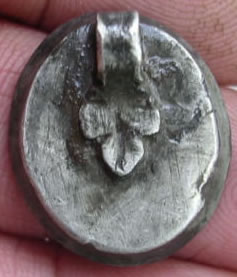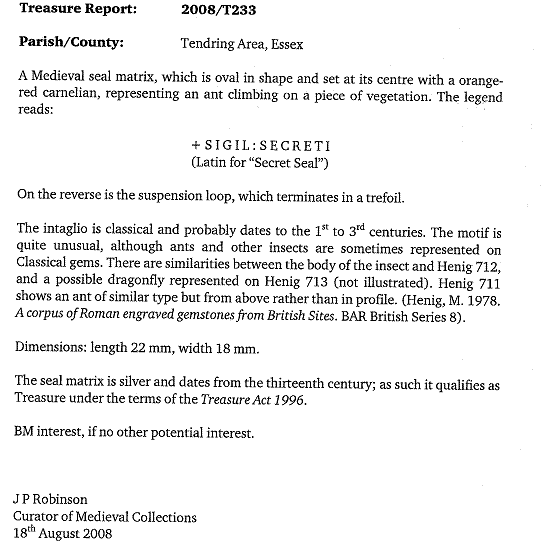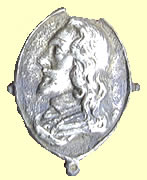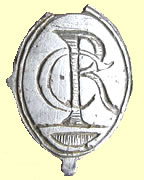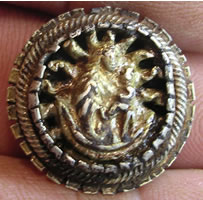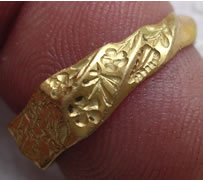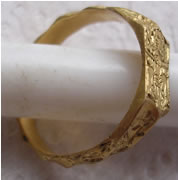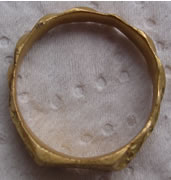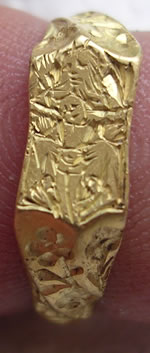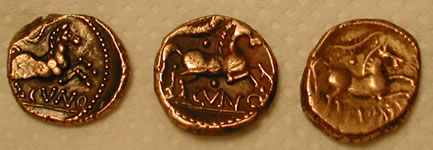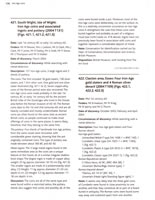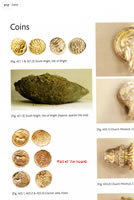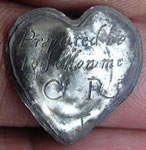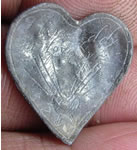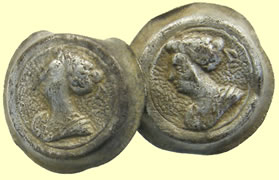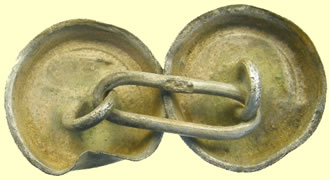

Metal detecting holidays in England with the World's most successful metal detecting club.20 years plus.
Twinned with Midwest Historical Research Society USA.
 |
Colchester
Castle information and links |
 |
|
For most guys' this a must visit on the last half day of their tour as you can see all the history of Colchester under one roof. Colchester castle is undeniably one of the most historic buildings in the country. All of the treasures and hoards found by the guys and bought by the local museum could be on display here at various times including Ohio Bud's Saxon gold dagger pommel and Mass Bruce's 850BC axe hoard etc
Colchester was the first capital of Roman Britain and beneath the Castle are the remains of one of the most famous Roman buildings, the Temple of Claudius. Today if you out your hand on the stonework of the temple it can be said that you are touching the very foundation of Roman Britain. Colchester Castle is a massive stone keep and bailey fortress, built on the foundations of the Roman Temple of Claudius. Only two storeys now survive of this, the largest Norman keep ever built, rectangular in plan with hugh flanking towers at the corners. In the 13th century a barbican with round flanking turrets was added to guard the fore building and ornate doorway. The inner bailey is still partly enclosed by a strong rampart and ditch, with the outer bailey to the north.
Colchester Castle is located in the town centre, off High Street in Castle Park.You can be dropped of there for a visit if you choose to. There are some great souvenirs to had with great repro Roman, Saxon, Celtic coins in a presentation pack really cheap. The site is owned by Colchester Museums and is open daily, Monday to Saturday 10:00-5:00pm, Sunday 11:00-5:00pm. For admission rates and special events go to its HomePage. |
||
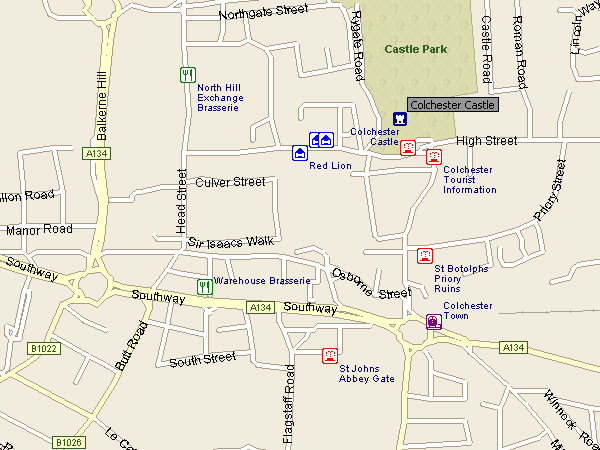 |
||
A selection of our finds currently on display there - donations and aquisitions
Inside the museum
|
||
|
Celtic gold coins
1300 BC gold armlet rings
Part of the Saxon gold coin display
Medieval annular brooch
Saxon gold pendant
Mass Bruce's 850 BC Bronze Age Axe hoard on display
Saxon gold dagger pommel- extracts from the Annual Treasure report
Mass Bill's 4thC Roman gold ring - extracts from the Annual Treasure report
Ark Gary's - 17thC Gold mourning ring - extracts from the Annual Treasure report
Recent finds donated by members to the Colchester museum
Nationally important find - only one of it's type ever found in Britain - Donated to Colchester Museum by Nova Scotia Andy 'It is probably an insular copy of a Carolingian style, or it could even be the product of a workshop located on the fringes of the Carolingian continent, maybe somewhere like Domburg on the coast of Frisia. 10th - 11th century in date'.
Roman silver ear scraper - donated to Colchester museum by Cal Randy
C10thC Saxon Lion headed strap end donated to Colchester museum by Ill Mark and landowner
5th-6th century AD Saxon gilded saucer brooch - running spiral design East Anglian type Donated to Colchster museum by Ark Gary and landowner
Saxon stirrup strap mount - top fixing Type 2A Similar to a design found at Swafield Norfolk Donated to Colchster museum by Ill Gene and landowner
Tenn Brad's - Stunning 16thC Tudor gilded silver pin - aquired by Colchester museum Pin dia 10.88mm, 4.68g
Tenn Brad's Medieval gold figurine PAS no: ESS-49E265 Treasure Report: 2008 T581 A medieval figure of John the Baptist. The saint is shown not in his usual attribute of a camel skin, but in the robes of a prophet. He gestures with his right hand to a salver, which he holds in his left. This was originally designed to carry a lamb, signifying the Lamb of God. A scroll issues from the Saint’s left hand and is inscribed with the words The figure stands on a small plinth with a finished base. It is designed to be seen in the round and on its back there is a loop for attachment to an object. It would probably have been entirely enamelled, but no traces of enamel survive on the figure. The figure is gold and dates from the late fifteenth or early sixteenth century. Dimensions: height 33 mm, width 11 mm, depth 10 mm.
Consequently, in terms of age and as the object contains a minimum of 10% precious metal it qualifies as Treasure under the stipulations of the Treasure Act 1996. Aquired by Colchester museum
Ill Gene's - c 13thC Solid silver medieval vessica seal 62.1g, 21.96mm L x 18.81mm x 5.51mm W (excluding hanger)
Roman intaglio red stone Aquired by Colchester museum
1625 Charles 1st bust - 0.58g, 13.54mm L Aquired by Colchester museum
Aquired by Colchester museum 572. Tendring Area, Essex:
NH Dave's 431. North of Colchester, Essex: Medieval gold iconographic finger-ring (2006 T445)
9thC Saxon period silver decorated strap end 5.82g, 44.44mm L x 11.91mm W - donated by Colchestertreasurehunting to museum
Virg Brian's Celtic gold hoard - From left to right - Aquired by Colchester museum CCI 04.0477 'classic A' series, VA 2027-1. Generally believed to have been the last major series of his gold, so probably dating from the 30s AD. There are three or four matches for this particular pair of dies in the CCI, among the c. 100 of the basic type. The decoration at the base of the corn-ear is a bit more showy than usual. CCI 04.0478 'plastic A' series, VA 2010-3. Believed to have preceded the classic type, so perhaps from c. 25 - 35 AD. About ninety of these are recorded here, and again there are a number of matches for both of these dies, including at least one coin in the British Museum (BMC 1819 in Hobbs's Catalogue of Iron Age coins in the BM). CCI 04.0479 'linear' series, VA 1925-1. The earliest of these three, perhaps from c. 20 AD, and a little rarer, with about 60 recorded here. Again there is a coin in the BM from the same pair of dies, BMC 1783. There are a couple of rather unusual features to the dies - although not clear on your example because of the position it has been struck, there appears to be no V on the end of CAMV, and there's also a mark - perhaps some kind of privy mark - after the CVN on the reverse, you can just see the top of what looks like a letter I between the N and the On display in Colchester museum
Mid 17thC Mourning silver token Obv 'Prepared be to follow me' CR T Rev 'I live and dy m loyal ye' 19.88mm L x 19.02 mm W 1.14g Aquired by Colchester museum
Stunnning 1704 Queen Anne commemorative silver cufflinks - reported as treasure to museum and donated by Mary Sparks
|
||
